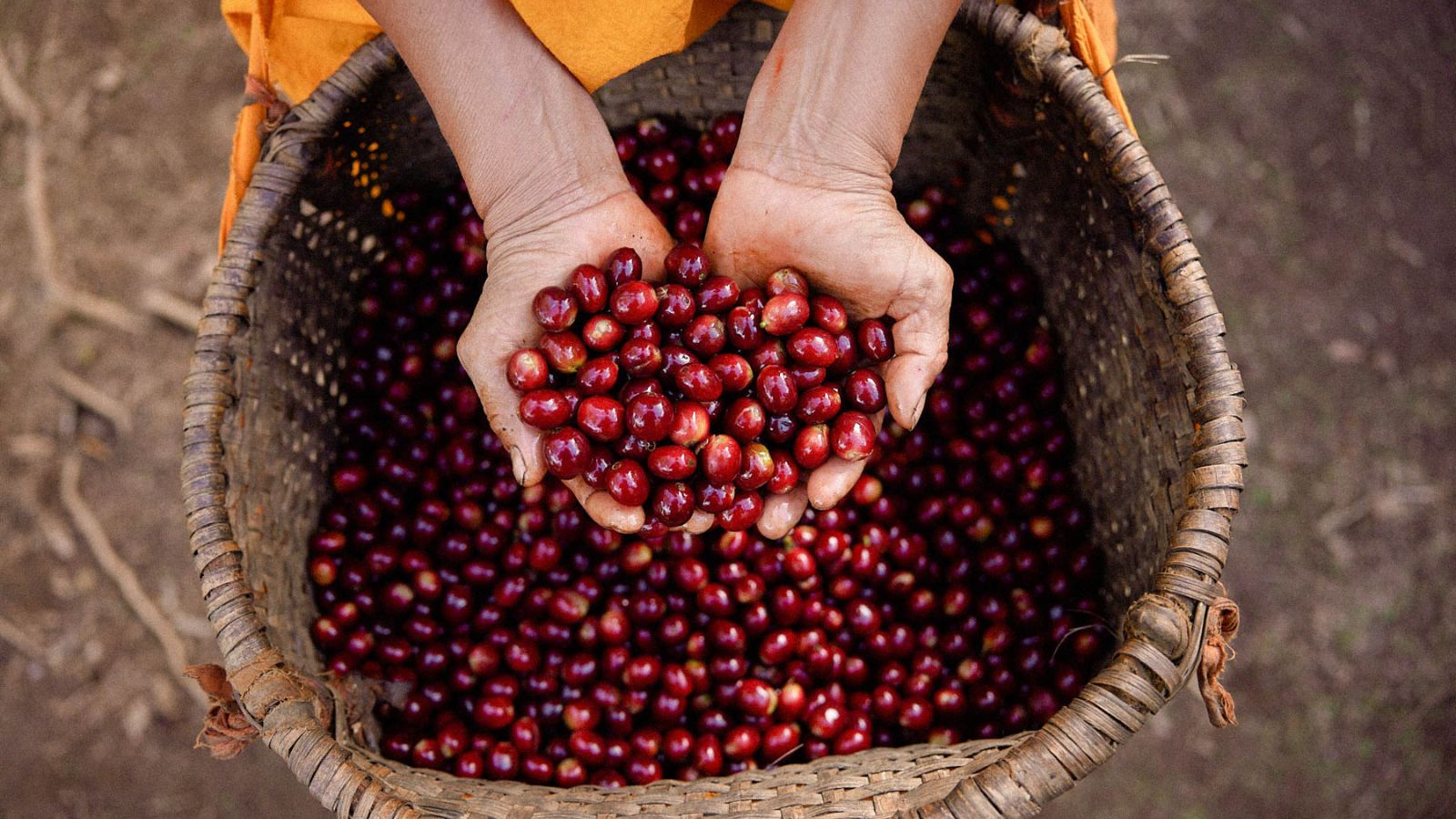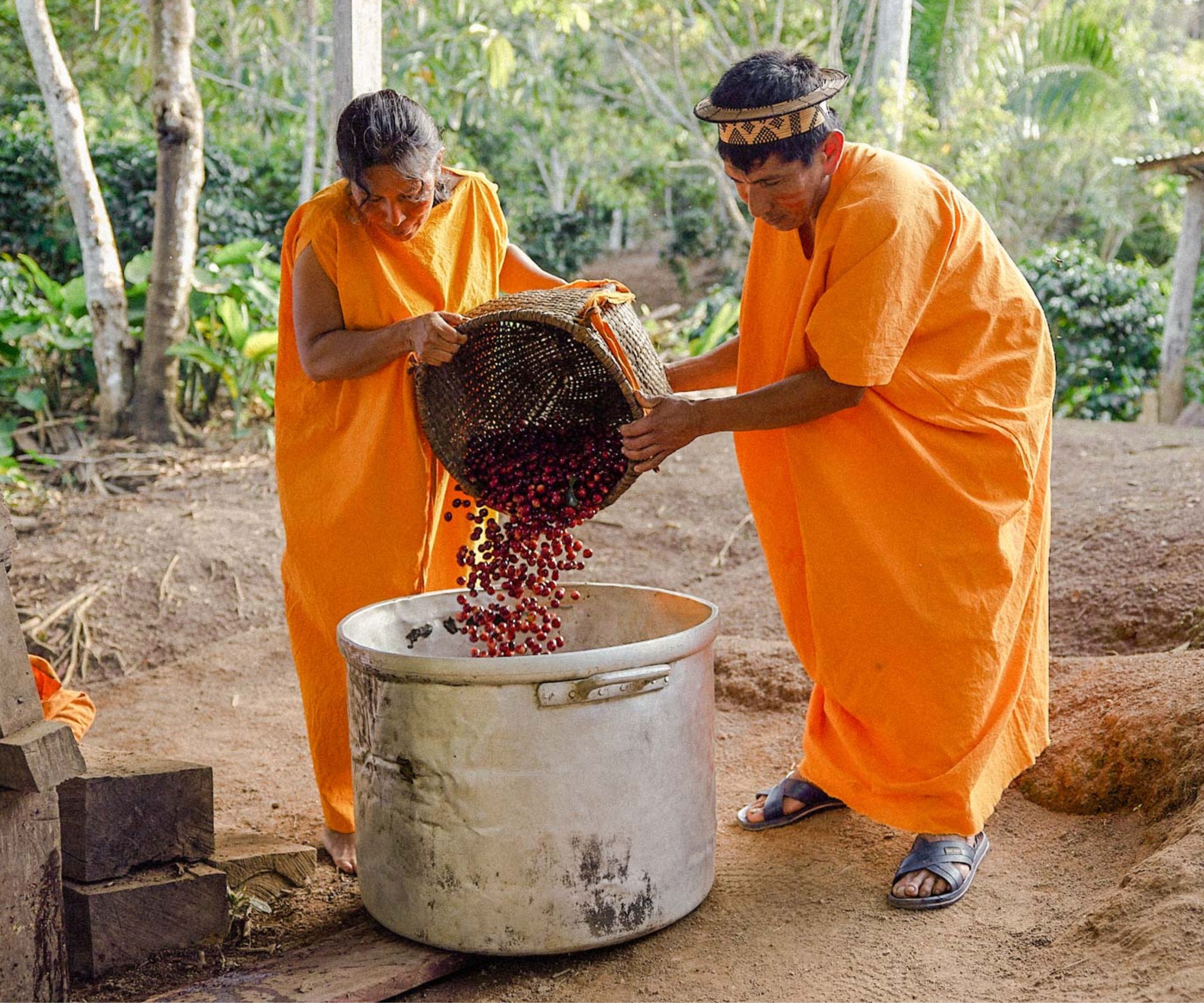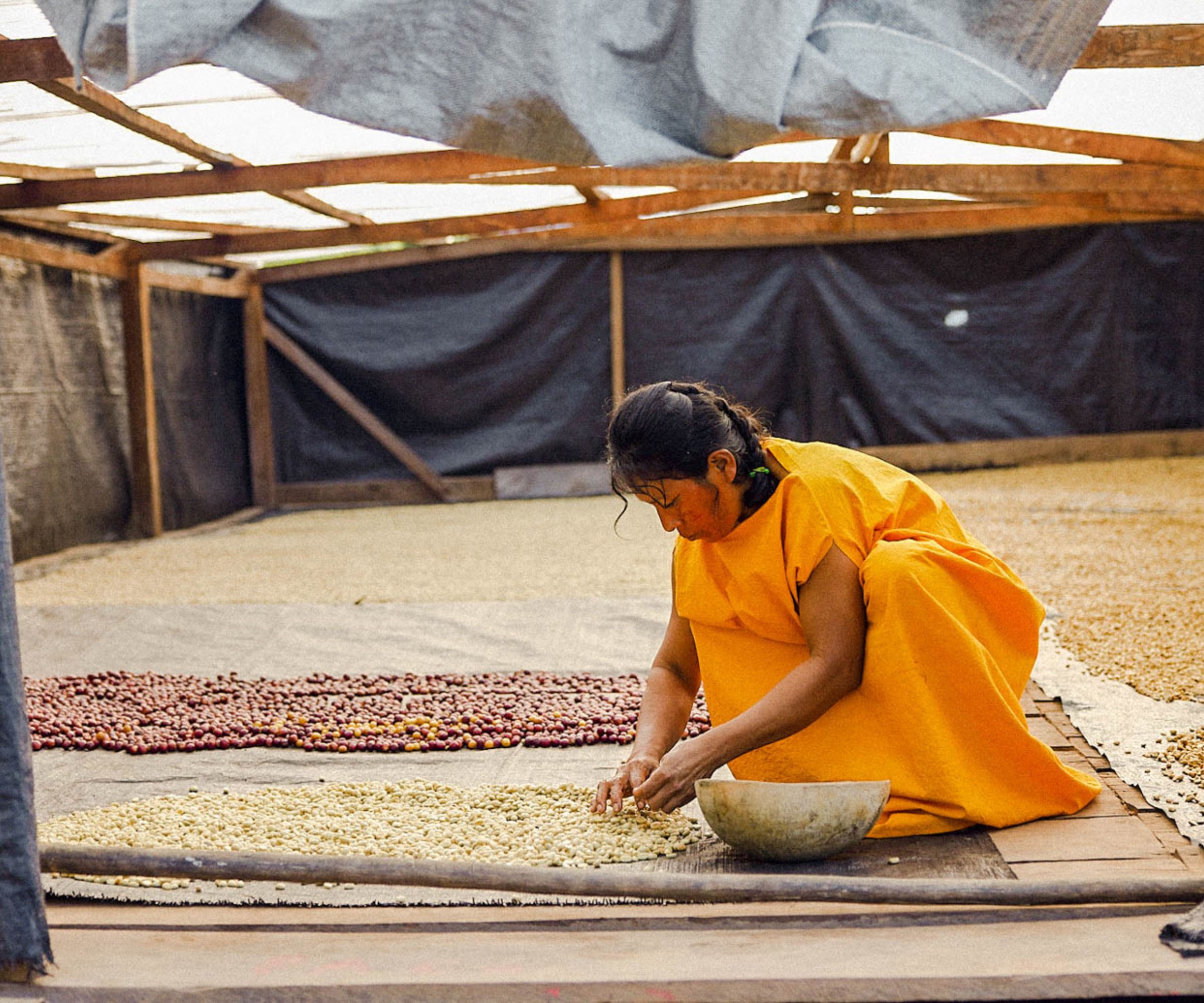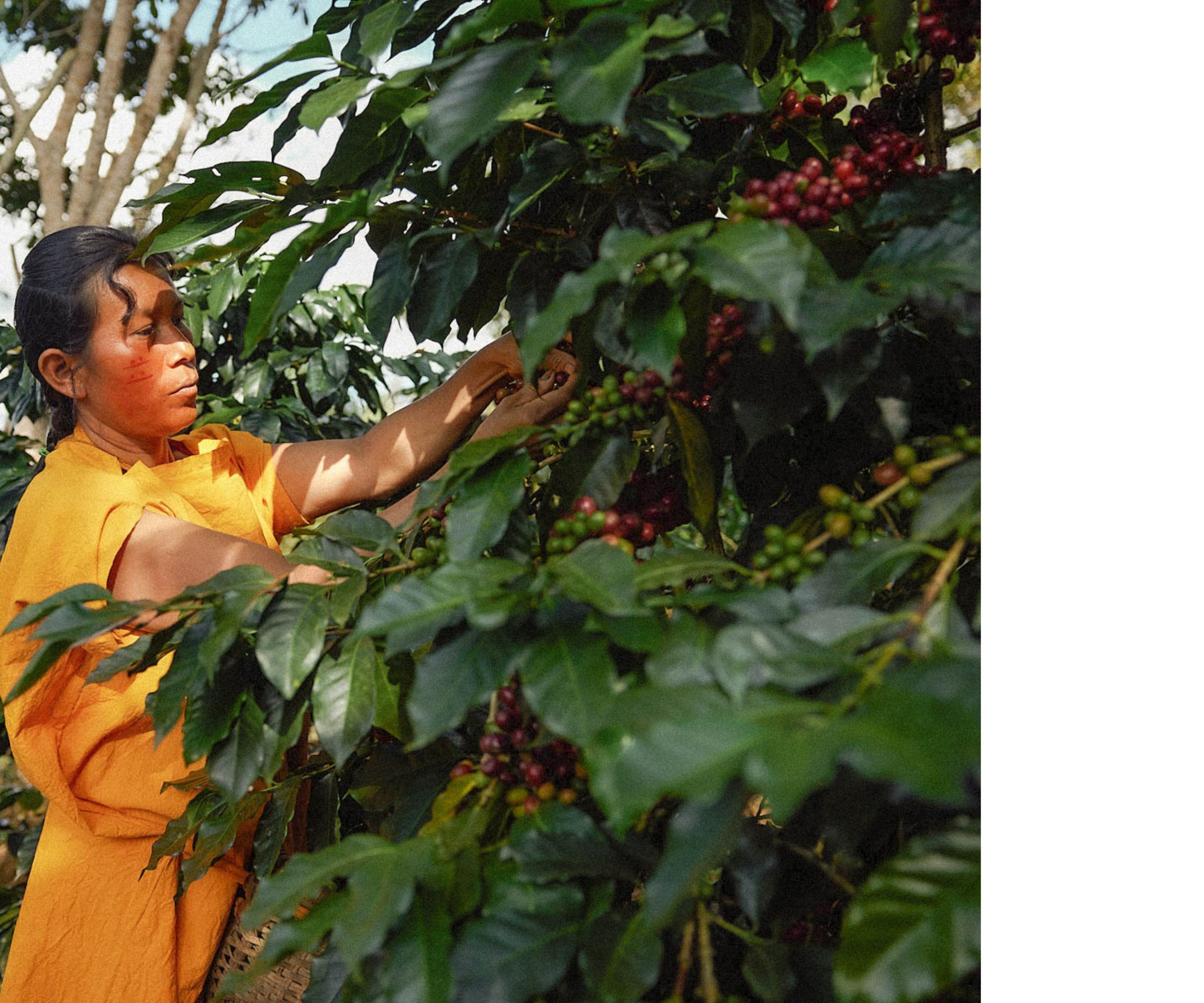
It's all well and good investing in delicious beans, but I can promise you that coffee tastes better when you know that it's doing both you and the people who grew it equal amounts of good. So, how do you choose ethical coffee?
Working out whether your coffee is 'ethical', sustainable, or fairly traded can depend on several factors. I spoke with Greg Campher, co-founder and Head of Coffee at Easy Jose Coffee. He's worked in the regenerative, ethical coffee industry for fifteen years, so has plenty of insight and advice on what to look for.
If you're wondering what qualifies coffee to be 'sustainable' or 'ethical', Campher has the answers. 'For coffee to be classed as ethical, the production of the beans must involve environmentally sustainable practices,' says Greg. He advises to look for shade-grown coffee, which preserves biodiversity or organic farming methods which reduce the use of harmful chemicals. There's so much more though. We've spilled all the (ethical) beans further down.
What are ethically sourced beans?

It's hard to pinpoint an exact definition for ethical coffee, since it is an umbrella term for so many factors: the farmers' and workers' well-being; the preservation of ecosystems and rainforests; organic, non-GMO farming practices; fair trading; and much more.
Greg explains, 'ethical coffee is essentially coffee that has been sourced sustainably. First and foremost, it means farmers and communities are receiving fair compensation for their hard work. In many coffee-growing regions, farmers face economic challenges, weather implications, pressure from supply chains, and price fluctuations within the industry. Ethical sourcing practices commit to providing fair prices to farmers, enabling them to maintain sustainable livelihoods and invest in their communities.'
Greg also stressed that ethical coffee beans need to be grown in a carefully nurtured, sustainable environment. The land should be supported by a biodiverse ecosystem and the coffee should be farmed with minimal harmful chemicals and maximal water preservation.
He says that if you're investing in high-quality beans, you're probably already investing in ethical coffee. 'By supporting brands that are transparent about their supply chains and traceability initiatives, consumers can have confidence in the quality and origin of the coffee they purchase.' Ethical coffee doesn't just have to feel good morally, it often tastes delicious.
He added that 'many coffee-growing regions have rich cultural traditions associated with coffee cultivation and processing, such as the Mayni Indigenous Community in the Amazon rainforest. Ethically sourced coffee initiatives help preserve these cultural practices by empowering local communities and supporting them directly.'
How to check whether your coffee is ethical

Even those with the best intentions might not know how to check whether their coffee is ethical or not.
Greg says 'there are several ways to check if coffee is ethically sourced. Although certifications are a good place to start, quite often smaller brands who are having a substantial impact, don’t always have the funds to pay for the accreditations. Some common certifications include Fairtrade, Rainforest Alliance, UTZ Certified, and Organic, which supply logos that are placed on packaging. These certifications ensure that the coffee meets specific social, environmental, and economic standards. However, there are brands out there going above and beyond these standards.'
'Some coffee brands provide information on their websites and/or packaging about their sourcing practices and partnerships with coffee growers. Look for brands that are transparent about where their coffee comes from and how they support farmers and communities. Easy Jose decided to put the faces of our growers front and center of our bags. This decision was to clearly communicate to shoppers who picked their coffee and an immediate way of connecting them to the producers.'
Greg advises looking for online retailers that prioritize ethical sourcing and purchase directly from them. That way shoppers can be assured most of their money is going directly to the farmers and communities. Local roasters and specialty coffee shops often prioritise ethical sourcing and more often than not have direct relationships with coffee producers. Ask staff at cafes, read reviews online, and enquire with a brand about their sourcing practices. By considering these factors and doing a little research, you can make more informed decisions when purchasing coffee.
What certifications can you look for?

While not a certification in the traditional sense, Direct Trade involves coffee roasters establishing direct relationships with coffee producers, bypassing intermediaries and ensuring fair prices for farmers. Although it doesn't have a standardized label, some coffee companies promote their direct trade relationships as a mark of ethical sourcing.
Fairtrade certification ensures that coffee producers receive fair prices for their beans, which covers the cost of sustainable production and provides a living wage for farmers. It also promotes democratic decision-making among farmer cooperatives and prohibits child labor and discrimination. Coffee bearing the Rainforest Alliance certification is grown on farms that meet rigorous environmental and social standards. These standards include protecting wildlife habitats, conserving natural resources, ensuring fair treatment and good working conditions for workers, and supporting local communities. UTZ Certified coffee signifies that the coffee has been sourced sustainably and meets standards for environmental responsibility, social equity, and economic viability. It focuses on improving agricultural practices, worker conditions, and farmer livelihoods.
Organic certification indicates that the coffee has been produced without the use of synthetic pesticides, herbicides, or fertilizers. Organic farming practices promote soil health, biodiversity, and environmental sustainability.
Which brands make ethical coffee?
As you might expect, Easy Jose Coffee is a great place to start for ethically sourced beans. They're sustainably grown and were voted Best Indy Buy by the Independent in 2020. There are also some great companies that experts recommend. Here's just a few:
- Union: these are the beans that I started out my journey as a barista with and they're beautiful. Buy Natural Spirit if you want organic beans
- Lifeboost: these are organic, low acid, and non-GMO. People say that they have a 'clean' taste
- Brewpoint: these guys are all about small-batch coffee. They help people to start their own coffee shops. It's a woman and minority-owned business.
- Frinj coffee: this is Californian coffee grown locally using an agroforestry model (they plant different, complementary crops next to each other. Who knew avocados and coffee were a match made in heaven?)
- Tiny Footprint: these people claim to be the world's first carbon-negative coffee that supports sustainability and fair labor. They donate money to fund reforestation.
- Tayst: this coffee is premium, biodegradable, and compostable too
- Cafédirect: founded in 1991, these roasters aim to make 'delicious coffee that's better for everyone'. They're addressing gender equality, climate action, and youth opportunities
- Equal Exchange: proud of fairly traded, organic coffee, and chocolate. tea and cocoa from small-scale farmers







